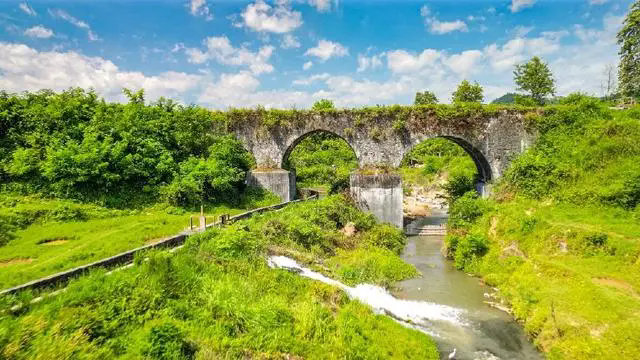Sitting in Chongqing, China, Jufeng Weirs were built in 1767 and funded by local residents. As the oldest, most well preserved and still operating irrigation project in Chongqing, it has been expanded and renovated through generations. In September, 2024, Jufeng Weirs system was inscribed into the World Irrigation Heritage List.

An aqueduct of Jufeng Weirs
As a dam-based water diversion irrigation system, Jufeng Weirs consist of Jufeng Weir, Yongfeng Weir and Huangjue Weir. Its main channel runs through two tributaries of Pingjiang River by means of three aqueducts, with an irrigation zone of over 1000 hectares. At the beginning, its designers took diverse professional measures to increase the safe overflow capacity while reducing the impact of backwater flooding. At the same time, it can also effectively protect inlet gates and irrigation channels from sedimentation hazards, realizing the irrigation approach of “high water irrigates high farmlands, as low water irrigates low farmlands”.
In 2022, Chongqing suffered from a severe drought. However, Jufeng Weirs helped to ensure an abundant autumn harvest in the irrigation zone as well as spring seeding and irrigation in 2023, thus revealing the practical value of this irrigation heritage. Dr. Amron, President of the Irrigation Heritage Review Committee of International Irrigation and Drainage Commission, spoke highly of the historical, cultural and engineering values of Jufeng Weirs, and further commented that with a long history, Jufeng Weirs boast of a diagonal weir layout, a stacked beam sand discharge gate as well as scientific and reasonable structures of inlets, channels and aqueducts, fully embodying the wisdom of the ancient Chinese people. Hence, it is deserved to be well protected and inherited.
The local government unveiled the Jufeng Weirs Irrigation Heritage Protection and Utilization Plan (2022-2035) and carried out restorations and protection, so as to facilitate this water project with a profound historical significance to benefit the local people in a continuous manner.